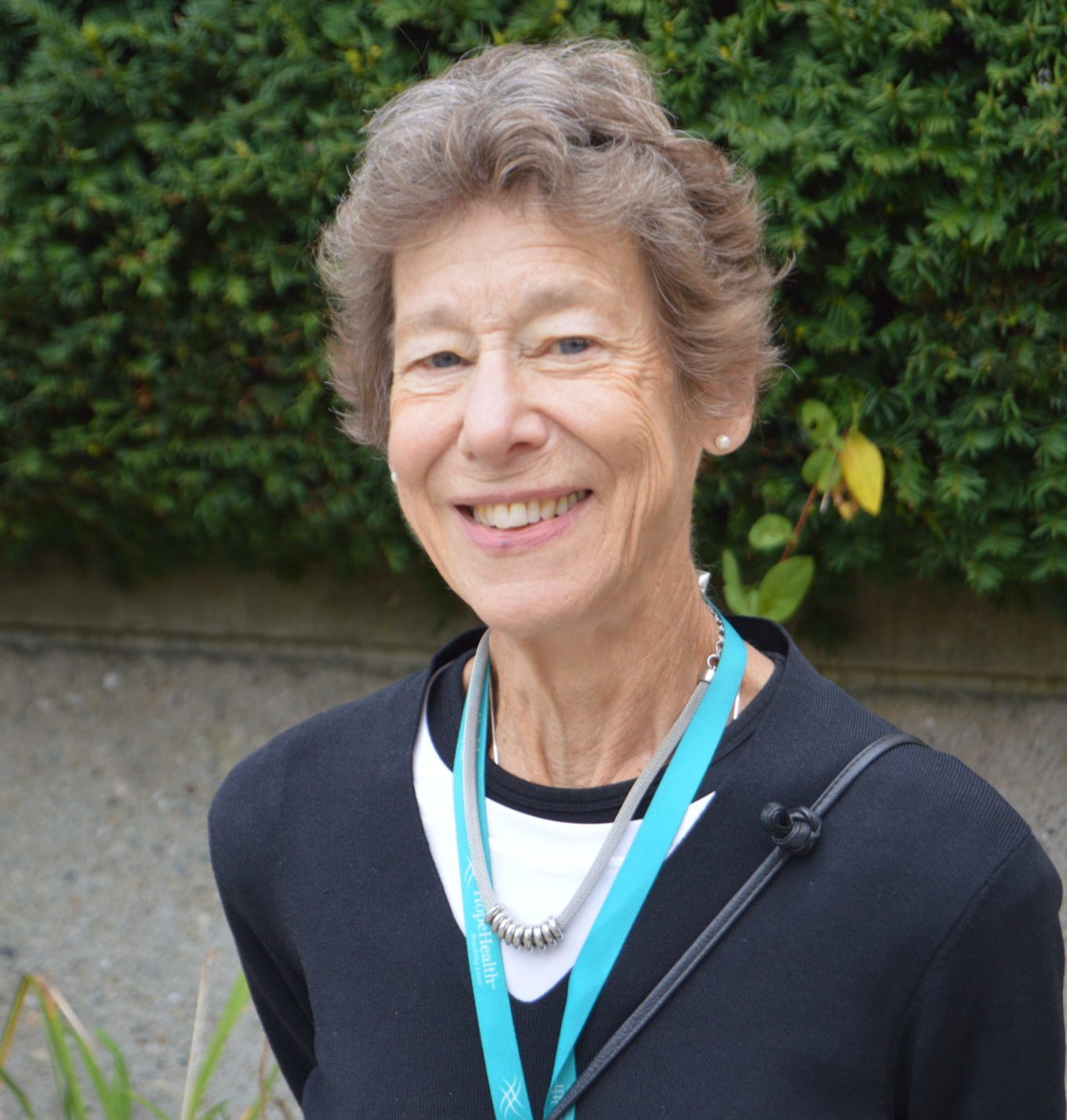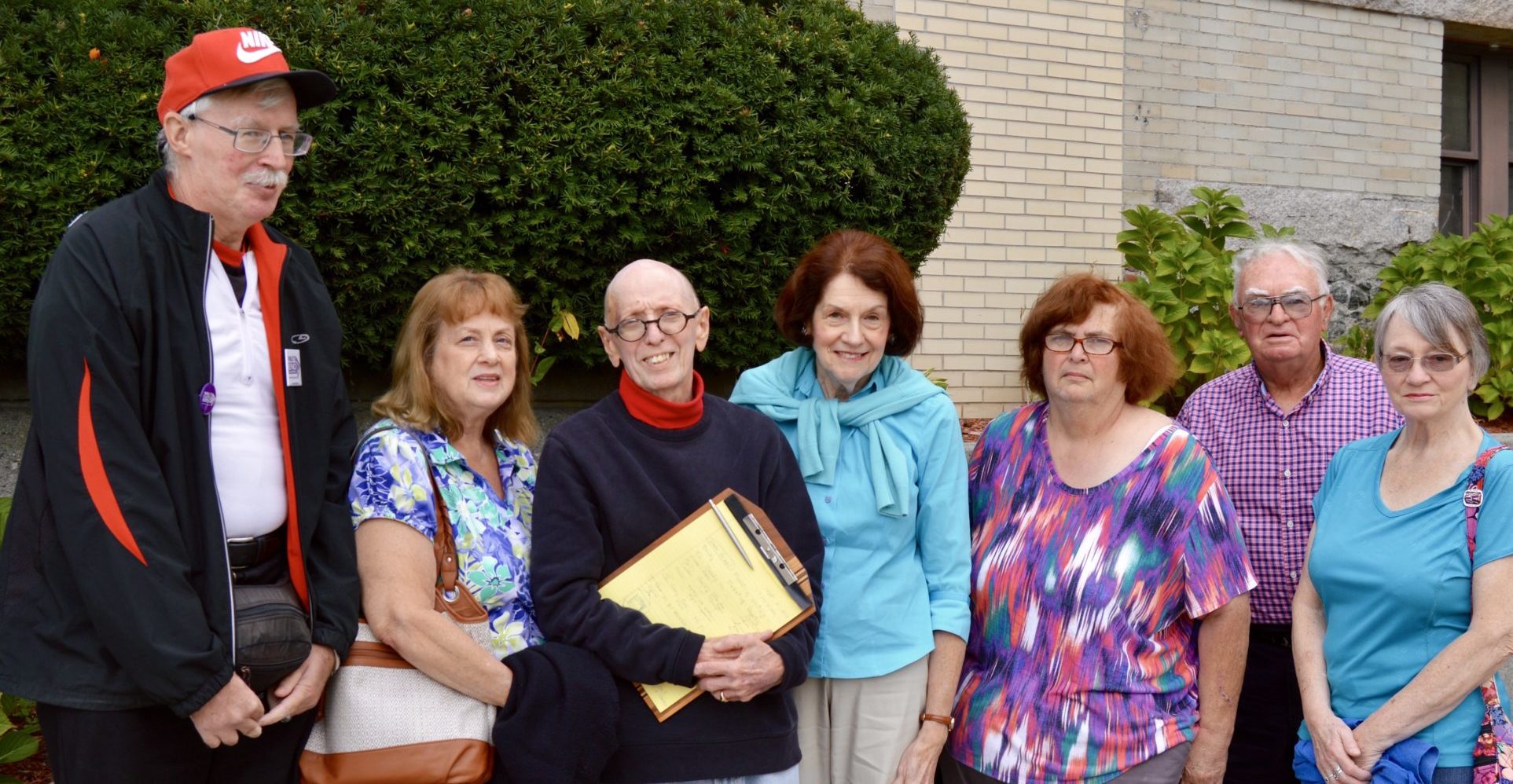It’s an overcast, late-summer day at a community center in Fall River, Massachusetts.
Inside, seven men and women—part of a HopeHealth caregiver support group—chitchat about vacations and local politics as they take seats around a table. Ki Miller, the group’s facilitator, waits for folks to settle, then gently prompts, “Let’s get started.”
Everyone here has a loved one with Alzheimer’s disease or another type of dementia. One by one, they take turns saying whatever they feel—or nothing at all. Some take comfort just in listening to the stories of others in situations similar to theirs.
Peter* has a story to share. Each week he visits a nursing home to see his beloved sister who has advanced Alzheimer’s disease. On his last visit, he was flipping channels on her TV and discovered that a Harry Potter movie seemed to make her content. He chuckles at the memory.
“When I visit her, it takes me a day or two to get back to my own feelings. It’s very depressing sometimes,” Peter says. He takes a long pause that no one interrupts. Silence is okay in this group.
“But I love coming here. This group is like family,” he adds.
“I feel more relaxed when I leave here.”
“A lonely adventure”

From the outside, caring for someone with dementia might appear similar to caring for people with other life-limiting illnesses, like cancer or heart disease. However, the relentless grind experienced by dementia caregivers is unique.
Ki is a professional counselor whose husband passed away from Lewy body dementia. She describes dementia caregiving as “a lonely adventure” with no road map: “What’s completely manageable one day can be unmanageable the next day.”
Many dementia caregivers experience intense stress, depression and feelings of grief and loss, according to the Alzheimer’s Association. Social isolation, physical ill-health and financial hardship are other risks.
“You put your life on hold and do what needs to be done.”
Seventy percent of people caring for someone with dementia feel sadness, compared to only half of caregivers helping someone without dementia, according to an Associated Press poll.
Facing burnout and a lack of support, dementia caregivers might feel guilty sharing their true feelings with people who cannot relate.
A community for coping

HopeHealth’s support groups are confidential, judgment-free spaces where dementia caregivers and family members feel understood.
They exchange advice and express complex, often uncomfortable emotions, which can be hugely beneficial to their well-being. It’s a way to cope.
Honest realities are a frequent topic in the Fall River group.
One participant reveals the sadness of “losing idle chat” with his wife. Another compares looking after her mother to caring for an infant. One member theorizes that her family and friends don’t visit enough “because people find mental illness frightening. They don’t want to think about.”
No one in the group feels judged for their thoughts. On the contrary: “I feel more relaxed when I leave here,” says Lauren.
They laugh, too. Humor plays an important role in the group. Cheryl, a nurse, quips, “It was so much easier caring for other people’s parents!”
As facilitator, Ki helps normalize the painful feelings that caregivers grapple with every minute of the day. “You put your life on hold and do what needs to be done. You’re giving your all, but it can feel like it’s never enough,” she explains.
This shared sacrifice bonds group members and ultimately, Ki believes, is a testament to “the goodness in people and the triumph of love.”
*Group participant names changed to protect privacy.
Attend a dementia-caregiver support group!
HopeHealth offers sessions throughout Rhode Island and in southern Massachusetts. Sessions are free and open to the public, but advance registration is required.
Find a dementia and Alzheimer’s caregiver support group.
For questions or to sign up, contact us at (401) 415-4664 or Info@HopeDementia.org.

